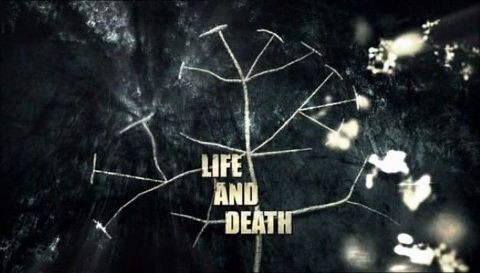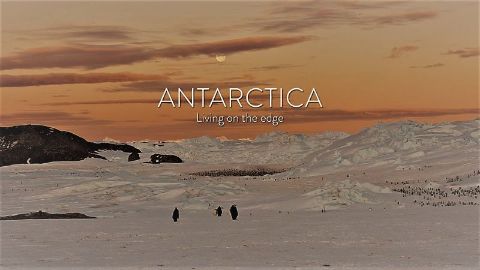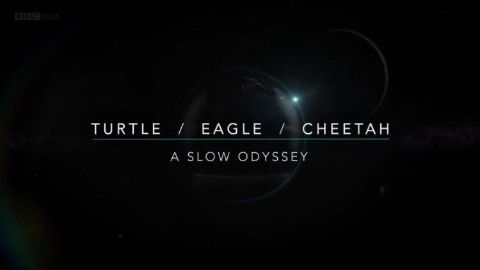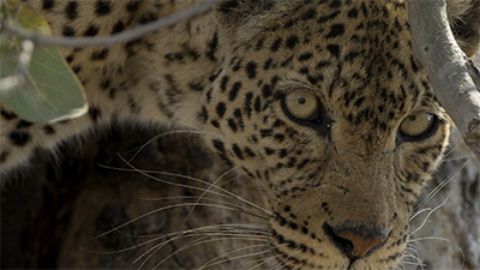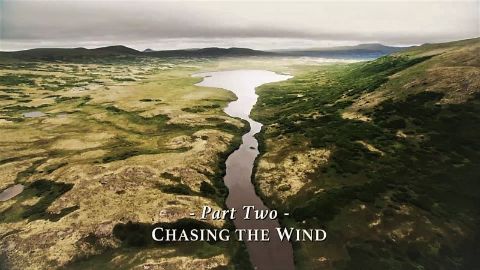Darwin's Dangerous Idea • 2009 • 3 episodes •
The first programme of Darwin's Dangerous Idea explores the impact of Darwin’s ideas on religion and morality. Andrew Marr discovers that an important part of the Beagle’s mission was to return three natives to their homeland, Tierra del Fuego, at the southernmost tip of Argentina. Years before he reached the Galapagos, they raised questions in his mind about the fragility of civilisation and what it really means to be human. Marr explores how Darwin developed his ideas when he returned to Britain and finally unleashed his theory of evolution by natural selection on the world. Darwin’s ideas are taken up by many of the major thinkers of the late 19th and early 20th centuries: Karl Marx, Friedrich Nietzsche and Sigmund Freud. We discover that his ideas helped motivate the Kaiser’s army in the First World War and would also help convince the United States government to drop its isolationist policy and enter the conflict. In the 20th century, we discover a growing backlash against Darwin’s ideas among fundamentalists from the world’s major religions. At the same time science has been showing that Darwin’s theory of natural selection holds sway over our behaviour - including our morality - as much as it does over the evolution of our bodies. There is significant scientific evidence that suggests that Darwin has returned humanity to nature, in all its wonder, its glory and its danger.
2009 • Nature
The second episode of Andrew Marr's exploration of Darwin explores the impact of Darwin’s ideas on society and politics. Darwin’s first port of call on the Beagle was Salvador in Brazil – then a major port for the international slave trade. His experience there confirmed his enlightenment views of liberty and progress and his hatred of slavery. But his theory of evolution that began to take root on that epic voyage would describe a world of conflict, ruthless competition and struggle. It would be taken up and abused by some of the most reactionary movements of the late-19th and 20th centuries. The phrase “survival of the fittest” would help propel Darwin’s theory as a scientific justification for eugenics, enforced sterilisation and genocide. But after the Second World War, Darwin’s theory finds redemption in the United Nations statement on race which confirms Darwin’s long-held view that all humans are members of the same race and deserving of equal treatment. This is further reinforced in the extraordinary work of a small Jewish community in New York who used DNA testing and a voluntary and anonymous form of selective breeding to eliminate a debilitating disease from the Jewish community. DNA testing is the final frontier of Darwin’s Dangerous idea. But the lessons from history suggest that the new choices we face about what to do with the knowledge Darwin has given us when combined with genetics and DNA testing remains a major social and political challenge.
2009 • Nature
Life and Death explores the impact of Darwin’s ideas on our understanding of the meaning of extinction and the interconnections between all life on earth and the environment. Darwin learned many lessons from the giant fossils of extinct animals he found in Argentina and Chile. He eventually revealed to us the unpalatable truth that the logical conclusion to evolution is not perfection but extinction. The extinction of one species creates an environmental niche for new species to fill. Darwin’s theory also gives us vital knowledge we can use to help prolong the existence of our species by respecting the interconnections between all elements of the natural world and the environment. It’s a story in which Darwin’s ideas are taken up with great enthusiasm by his followers throughout the 20th century. But humanity misses one opportunity after another to acknowledge and reduce its destructive impact on the planet. As a result we have set in motion the sixth mass extinction of life on earth. And we are running out of time to do something about it by preserving ecological "hotspots" like certain rainforests which are some of the most productive cradles of evolution. This programme is a warning, but also a celebration, of the knowledge Charles Darwin gave us in his theory of evolution. It confirms that Darwin’s theory continues to inform our understanding of ourselves, our planet and the intricate interconnections between all life on earth.
2009 • Nature


